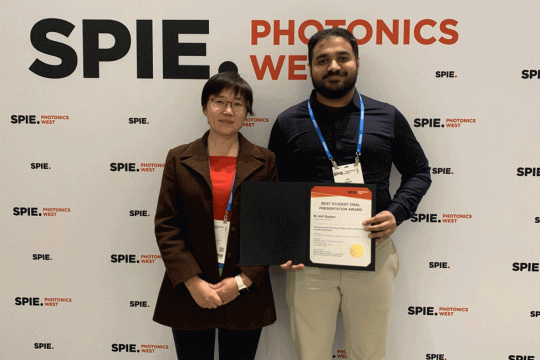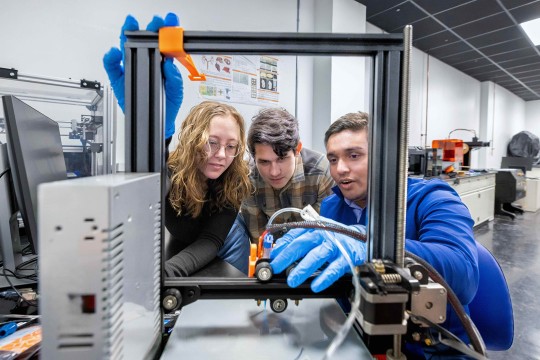RIT and Delphi Inc. Receive Federal Support for Fuel Cell Initiative
Congresswoman Louise Slaughter secures $1.6 million for joint research initiative
Congresswoman Louise Slaughter has announced a $1.6 million grant for a joint program between Rochester Institute of Technology and Delphi Inc. that is developing fuel cell technology for Department of Defense power and transportation systems.
Fuel cells can provide quiet, flexible and fuel-efficient operation that makes them suitable for use in “stealth” vehicles or quiet portable power systems. The work being conducted by Delphi and RIT’s Center for Integrated Manufacturing Studies will aim to improve fuel cell reliability, durability and cost while also enabling mass production and enhancing ultimate commercialization for additional civilian uses.
“I’m so pleased to provide funding for a productive partnership between RIT and Delphi,” says Slaughter. “The fuel cell sector is an emerging growth market that could generate an estimated $15 billion in revenue globally over the next 10 years and the collaboration between RIT and Delphi has the potential to cement Rochester as a hub of knowledge-based jobs developing tomorrow’s energy solutions.”
“Thanks to the support of Congresswoman Slaughter, our research partnership with Delphi will enhance the development and implementation of alternative fuel technologies while also promoting RIT’s educational mission in sustainable production and renewable energy,” notes Nabil Nasr, assistant provost for academic affairs and director of the Center for Integrated Manufacturing Studies at RIT. “In addition, these efforts will ultimately increase the environmental quality of our transportation sector and advance the new energy economy in the Rochester region.”
Delphi’s prototype solid oxide fuel cell produces electricity by “harvesting” hydrogen from diesel, biofuel or natural gas. The fuel cell achieves up to 40 percent more power than the traditional combustion engine and runs quieter than current military power systems. In addition, project researchers believe Delphi’s unit could become the first commercially produced solid-oxide fuel-cell unit to hit the market by as soon as 2012.











